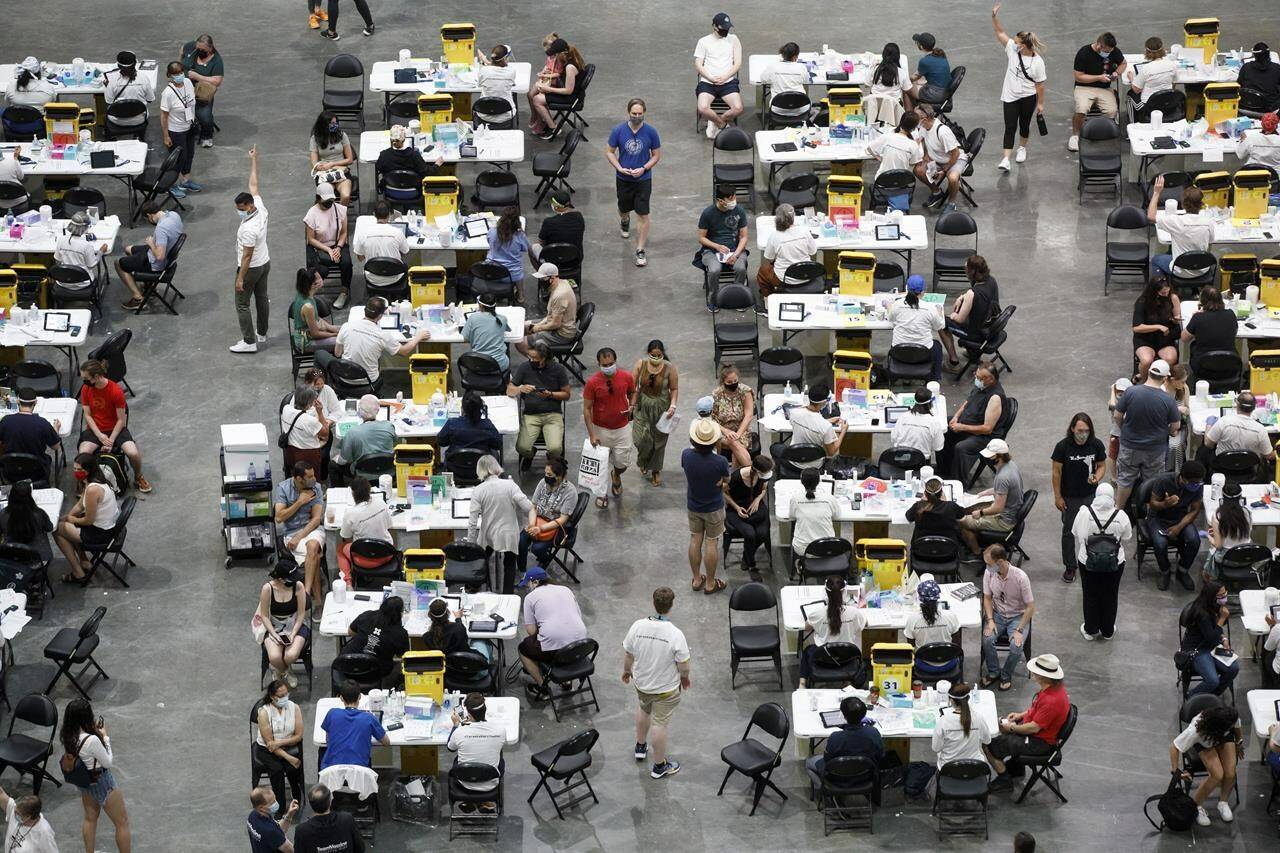A dearth of data about who is getting COVID-19 vaccines and who is not could be causing people of certain races or socio-economic backgrounds to fall through the cracks, according to several concerned advocates.
Without good information from the provinces, certain groups may be left vulnerable to the virus and disproportionately punished by vaccine mandates.
Research has indicated significantly less uptake in COVID-19 vaccines among racialized Canadians — particularly those who are Black — said Dr. Kwame McKenzie, CEO of policy think tank Wellesley Institute.
“But nobody’s really doing anything about this because if you are not counted, you do not count. It’s as simple as that,” said McKenzie, who has advised the government on testing and screening for COVID-19 during the pandemic.
“If you don’t look, you can’t find and if you don’t have the data, then it’s a problem.”
As of Oct. 30, about 84 per cent of eligible Canadians have received at least two doses of a COVID-19 vaccine, but provincial governments and the Public Health Agency of Canada (PHAC) have not collected detailed information about people as they received their shots.
McKenzie says without accurate data, it’s difficult to know precisely who those other 16 per cent of people are and how to develop strategies to support them and win their trust.
“It’s difficult for it not to feel like equity was not a priority,” he said.
If certain marginalized groups are being disproportionately left out of the vaccine rollout, they are likely also disproportionately affected by vaccine mandates as well, he said, and governments have not done the work to identify and address that problem.
“I am not 100 per cent convinced that we have done all of the work we needed to do to ensure that the vaccine mandates were not discriminatory,” McKenzie said.
The lack of data is particularly galling for advocates because it was raised at the outset of the pandemic, when Black people in the United States were disproportionately infected with COVID-19.
Advocates believed a similar situation was playing out in Canada, but most public health authorities were not keeping track and it was nearly impossible to see the national picture.
Now the U.S. Centers for Disease Control and Prevention (CDC) has been able to report nearly real-time information about the demographics that have received vaccines, allowing community and public health groups to see where the gaps are and if their outreach has worked over time.
— The Canadian Press
RELATED: Health Canada authorizes booster shot using Pfizer’s COVID-19 vaccine for all adults
RELATED: More than 19K lives wouldn’t have ended if pandemic never happened: Stats Canada

